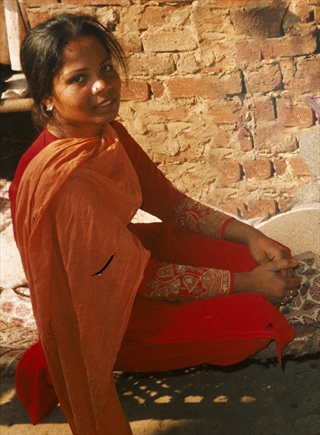Aasiya Noreen, a Pakistani Christian woman who has been on death row for over seven years for alleged blasphemy, has been nominated for this year’s Sakharov Prize for Freedom of Thought.

The 52-year-old, who has become widely known as Asia Bibi (‘Bibi’ is an affectionate title given to women in Pakistan), is among six nominees for the European Parliament award, which recognises individuals and organisations for defending human rights.
The other nominees are Guatemalan human rights defender Aura Lolita Chavez Ixcaquic; Selahattin Demirtas and Figen Yuksekdag, co-presidents of the Kurdish People’s Democratic Party in Turkey; a group representing the Venezuelan opposition; Dawit Isaak, a Swedish-Eritrean playwright arrested in 2001 by the Eritrean authorities; and Pierre Claver Mbonimpa, a human rights defender from Burundi.
Three finalists will be shortlisted by the European Parliament’s foreign affairs and development committees on 10 October. The winner will be announced on 26 October and an award ceremony will take place in Strasbourg in December.
‘Symbolic importance’
Polish MEP Anna Fotyga of the conservative European Conservatives and Reformists Group (ECR), which nominated Noreen, said her “behaviour in prison, the dignity she has shown during all these years is the best proof of her being able to represent the dignity of a defender of human rights in the face of the worst fate”, as reported by Radio Free Europe.
Dutch MEP Peter van Dalen, also with the ECR, explained to Agenzia Fides that “Asia Bibi’s case is of symbolic importance for others who have endured simply for expressing freedom of religion”.
Aasiya Noreen has been in prison since the summer of 2009, after being found guilty of insulting Islam’s prophet during an argument with a Muslim woman. In 2010 she was sentenced to death and her appeal to Pakistan’s Supreme Court, which was postponed a year ago this month, is still to be heard.
According to Pakistani writer Kaleem Dean, Noreen’s case shows “the situation of the whole Christian community” in the country.
“Her case is tragically indicative of the insecurity faced by all minorities when it comes to their fundamental human rights,” he told Fides.
“The recognition of freedom of religion in Pakistan is at stake,” he added. “… Unfortunately this blasphemy law is regularly exploited as a vengeance tool to pursue innocent people. In recent years the abuse of the blasphemy law has increased. It is now considered a simple, fast and inexpensive way to resolve private disputes and punish their rivals.”
On 29 September the UN Human Rights Council called for the abolition of the death penalty for apostasy and blasphemy. It urged UN member states that still have the death penalty to, among other things, “ensure that it is not imposed as a sanction for specific forms of conduct such as apostasy, blasphemy, adultery and consensual same-sex relations”.
